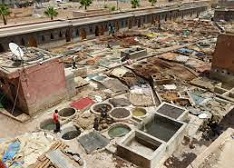Amid devastating loss of life due to disasters and conflict, there is often unfounded fear and misunderstanding concerning the dead.
It is therefore important that communities have the tools and information they need to manage dead bodies safely and with dignity. This is in part to help survivors along the path to recovery, the International Federation of the Red Cross and Red Crescent Societies (IFRC), the International Committee of the Red Cross (ICRC) and the World Health Organization (WHO) said today.
When many people die in natural disasters or armed conflict, the presence of these bodies is distressing for affected communities. Some may move quickly to bury bodies, such as in mass graves, in part in an attempt to manage this distress, and sometimes because of the fear that these bodies pose a health threat. This approach can be detrimental to the population, the organizations said.
Though local authorities and communities can be under immense pressure to bury the dead quickly, the consequences of mismanagement of the dead include long lasting mental distress for family members as well as social and legal problems. Well managed burials include easily traceable and properly documented individual graves in demarcated burial sites.
This should ensure that the exact location of each dead body, as well as the associated information and personal belongings, is known as outlined in guidance developed by the organizations, in particular the ICRC/IFRC/WHO Manual for the Management of the Dead After Disasters. Cremations should not take place before the body is positively identified.
In order to support better management of the dead, the organizations provide supplies and expertise to local authorities to help them manage the sometimes-overwhelming task of burying the dead. Today in Libya, Red Cross and WHO teams are working directly with authorities, communities and the Libyan Red Crescent Society, supporting them with guidance, materials, and training. The ICRC and WHO are both delivering body bags in Libya to help with the dignified treatment of the dead.
The bodies of people who have died following wounds sustained in a natural disaster or armed conflict almost never pose a health danger to communities. This is because victims who have died from trauma, drowning or fire do not normally harbour organisms that cause disease with common precautions. The exceptions are when deaths occur from infectious diseases such as Ebola or Marburg diseases or cholera, or when the disaster occurred in an area endemic for these infectious diseases.
Under any circumstance, dead bodies near or in water supplies can lead to health concerns, as the bodies may leak feces and contaminate water sources, leading to a risk of diarrheal or other illness. Bodies should not be left in contact with drinking water sources.
“The belief that dead bodies will cause epidemics is not supported by evidence. We see too many cases where media reports and even some medical professionals get this issue wrong,” said Pierre Guyomarch, the head of ICRC’s forensics unit. “Those who survive an event like a natural disaster are more likely to spread disease than dead bodies.”
“We urge authorities in communities touched by tragedy to not rush forward with mass burials or mass cremations. Dignified management of bodies is important for families and communities, and in the cases of conflict, is often an important component of bringing about a swifter end to the fighting,” said Dr Kazunobu Kojima, Medical Officer for biosafety and biosecurity in WHO’s Health Emergencies Programme.
“An unnecessary rush to dispose of bodies of those killed in disasters or conflict deprives families of the opportunity to identify and mourn their loved ones, while providing no public health benefit. Dignified treatment of the dead requires appropriate time to identify the deceased and mourn and perform funeral rites in accordance with local cultural and social norms,” said Gwen Eamer, IFRC’s Senior Officer for Public Health in Emergencies and Head of Emergency Operations, Morocco Earthquake Response.
